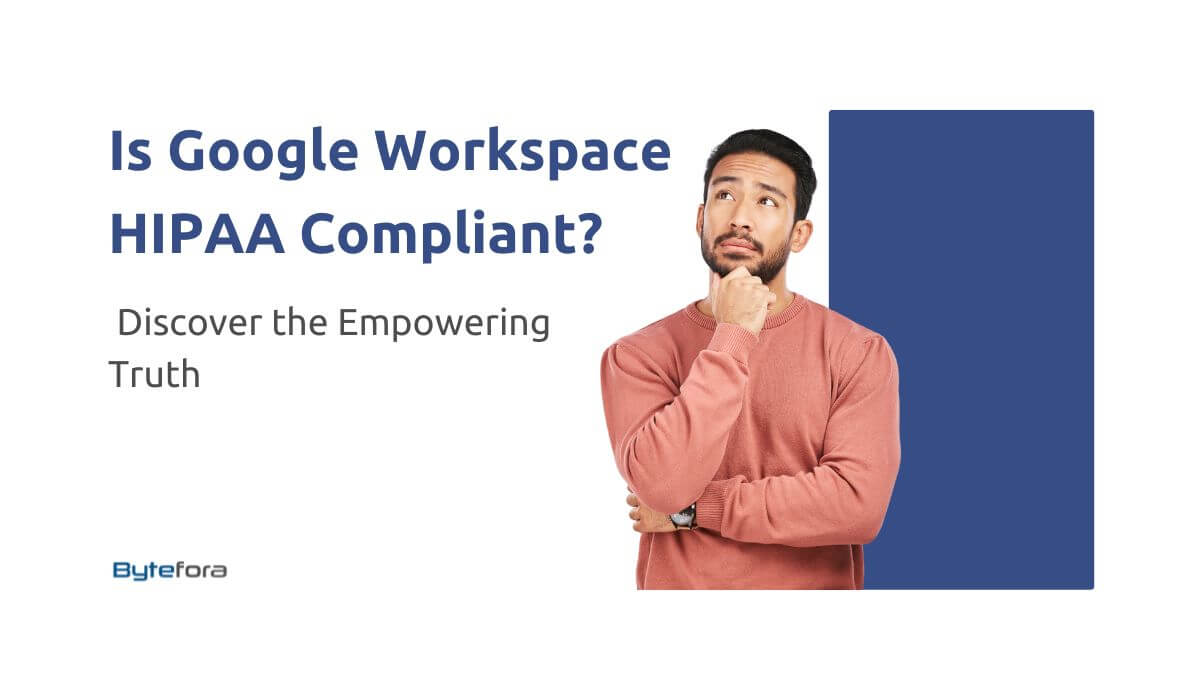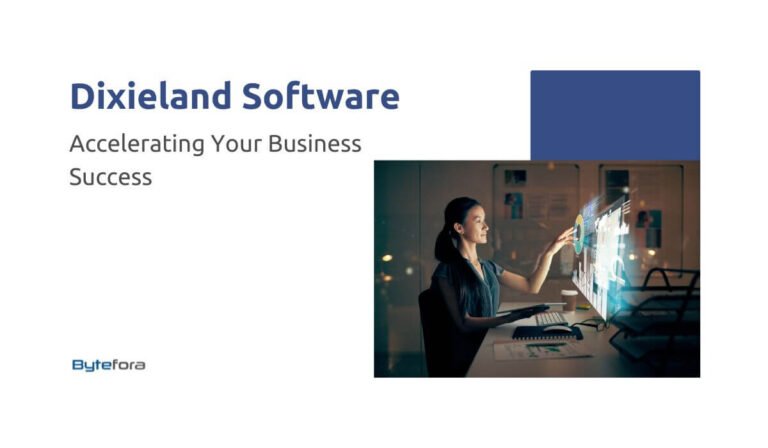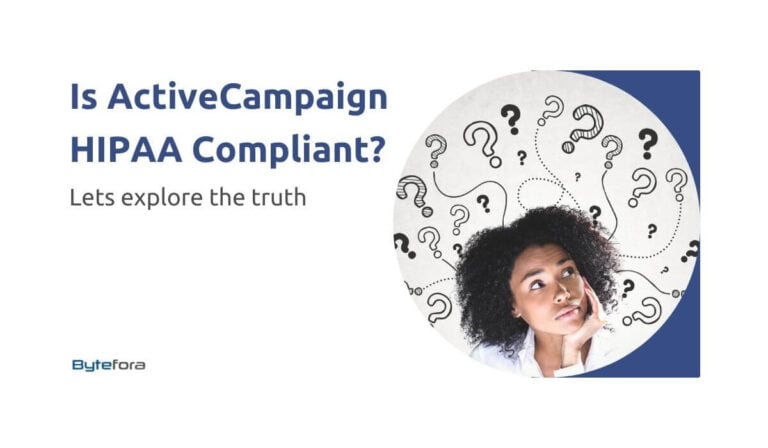
Data security is paramount in the ever-evolving healthcare landscape, especially when handling sensitive patient information. One cornerstone ensuring healthcare data defense. As healthcare professionals increasingly turn to digital collaboration tools, the question arises: Is Google Workspace HIPAA compliant?
In this exploration, we will unravel the intricacies of HIPAA compliance and delve into the capabilities of Google Workspace as a potential solution for healthcare collaboration. As healthcare providers embrace digital transformation, the need for secure and efficient communication tools becomes more pressing. Join us as we navigate the realms of HIPAA regulations, Google Workspace features, and the seamless integration of the two, shaping the future of healthcare data management.
Table of Contents
Understanding HIPAA Compliance
In the intricate web of healthcare regulations, it appears as the linchpin for hooking the confidentiality and integrity of patient data. Established in 1996, HIPAA provides a comprehensive framework to safeguard Protected Health Information (PHI) across the healthcare ecosystem.
HIPAA compliance revolves around several fundamental principles, all aimed at fortifying the security of patient data. Firstly, covered entities, including healthcare providers, health strategies, and healthcare clearinghouses, must safeguard PHI’s confidentiality, integrity, and availability. This involves using secure communication channels, access controls, and encryption protocols.
Secondly, covered entities must conduct routine risk assessments to identify possible vulnerabilities and implement measures to address them. This proactive approach ensures continuous enhancement of security measures in response to evolving threats.
Moreover, HIPAA mandates the implementation of guidelines and procedures that govern the use and exposure of PHI. This includes access management, workforce training, and guidelines for sharing information within and outside the healthcare organization.
HIPAA compliance is not static but an ongoing commitment to maintaining the highest data security standards. The intent is clear: to instill confidence in patients that their sensitive information is handled with the utmost care and protection.
Transitioning into the digital age, healthcare organizations seek collaboration tools that align seamlessly with HIPAA requirements. Google Workspace is a potential solution with its suite of applications designed for efficient communication and collaboration. The subsequent sections will unravel the collaboration between Google Workspace and HIPAA compliance, shedding light on the capabilities that make it a promising choice for healthcare professionals navigating the complex data security landscape.
Google Workspace Overview
In the dynamic realm of digital collaboration, Google Workspace emerges as a powerhouse, offering a suite of applications designed to streamline communication and enhance productivity. Formerly known as G Suite, Google Workspace encompasses a combination of tools, including Gmail, Google Drive, Google Meet, and more, providing a cohesive environment for seamless collaboration.
Gmail, the email component of Google Workspace, is a secure and user-friendly platform for communication. Its robust features include end-to-end encryption and advanced spam filtering, ensuring the confidentiality and integrity of messages exchanged within the platform.
Google Drive, a cloud-based storage solution, allows users to store, share, and cooperate on documents in real time. With advanced sharing settings and version control, Google Drive facilitates efficient collaboration while maintaining control over document access.
Google Meet is a video conferencing resolution that offers a reliable platform for virtual meetings. As the demand for remote communication grows, Google Meet provides a secure space for healthcare professionals to connect, discuss, and collaborate in real-time.
The appeal of Google Workspace extends beyond individual applications, emphasizing a unified ecosystem that fosters collaboration across diverse teams and projects. The seamless integration of these tools creates an environment where information flows effortlessly, enhancing productivity and reducing communication barriers.
As healthcare professionals explore digital collaboration solutions, Google Workspace stands out for its user-friendly interface, robust features, and device compatibility. The specific security features of Google Workspace and how they align with the stringent requirements of HIPAA compliance are assessed. Join us as we navigate through the intricacies of secure collaboration in the healthcare sector with Google Workspace as our
Google Workspace Security Features
As healthcare organizations increasingly pivot towards digital collaboration, the robust security features embedded within Google Workspace’s confidentiality of sensitive information align with the stringent requirements of HIPAA compliance.
Encryption Protocols:
Google Workspace employs state-of-the-art encryption protocols to safeguard data during transmission and storage. This end-to-end encryption ensures that messages, files, and other forms of data remain secure as they traverse the digital landscape. Whether in transit between users or at rest within the cloud infrastructure, Google Workspace prioritizes information protection.
Access Controls and Identity Management:
Central to HIPAA compliance is the management of access to sensitive patient data. Google Workspace integrates robust access controls and identity management features, allowing organizations to define and enforce who has access to specific information. Or modify sensitive data, mitigating the risk of unauthorized access.
Audit Logging and Monitoring Capabilities:
To maintain a proactive posture against potential security threats, Google Workspace incorporates comprehensive audit logging and monitoring capabilities. These features enable healthcare organizations to track user activities, monitor access patterns, and generate detailed audit reports. Abnormal activities that threaten data security by maintaining a vigilant watch over user interactions.
Incident Response and Data Breach Protocols:
Despite robust preventive measures, it is crucial to have effective incident response and data breach protocols in place. Google Workspace provides a structured framework for responding to security incidents, ensuring a swift and coordinated approach in the event of a breach. This proactive stance aligns with HIPAA’s emphasis on preventing breaches and having well-defined procedures for managing and mitigating the impact when incidents occur.
In essence, the security features embedded within Google Workspace serve as a comprehensive defense mechanism, addressing critical aspects of data protection mandated by HIPAA. The subsequent sections will explore how Google Workspace aligns with HIPAA compliance and the specific measures it takes to secure sensitive healthcare information. Join us as we unravel the layers of security that make Google Workspace a compelling choice for digital collaboration.
Google Workspace and HIPAA Compliance
In pursuing HIPAA compliance, healthcare organizations seek digital collaboration solutions that enhance efficiency. With its array of features and commitment to stringent security measures, Google Workspace emerges as a promising ally in healthcare data management.
Google Workspace’s Commitment to Regulatory Requirements:
Google Workspace is designed with a steadfast commitment to meeting regulatory standards, including those outlined by HIPAA. By aligning its security and privacy practices with the requirements set forth by healthcare regulations, Google Workspace provides a foundation for healthcare professionals to collaborate confidently while safeguarding patient information.
Case Studies and Examples:
Real-world examples highlight the successful integration of Google Workspace within healthcare settings. Numerous healthcare institutions have embraced Google Workspace, citing its user-friendly interface, seamless collaboration features, and robust security as critical factors in their decision-making. These case studies serve as a testament to the practical implementation of Google Workspace in diverse healthcare environments.
Analysis of Specific Features:
Delving deeper and analyzing specific features within Google Workspace that directly align with HIPAA compliance is essential. The secure communication channels of Gmail, the encrypted storage capabilities of Google Drive, and the reliable video conferencing provided by Google Meet all contribute to a comprehensive solution tailored to the unique needs of healthcare professionals.
As organizations navigate the intricate landscape of healthcare data management, the fusion of Google Workspace and HIPAA compliance emerges as a strategic alliance. The subsequent sections will further explore the specific aspects of Google Workspace, such as the Business Associate Agreement (BAA) and shared responsibility model, elucidating how these elements contribute to a secure and compliant environment for healthcare collaboration. Join us as we unravel the collaboration between Google Workspace and HIPAA, paving the way for a transformative healthcare data security and collaboration approach.
Potential Risks and Challenges
While Google Workspace offers a robust platform for healthcare collaboration and aligns with HIPAA compliance, challenges are associated with integrating digital tools in the healthcare sector.
Addressing Concerns Connected to Data Privacy and Security:
One primary concern revolves around data privacy and security. Healthcare organizations must remain vigilant in implementing additional safeguards to complement the security features of Google Workspace. This may include reinforcing employee training on data handling best practices and regularly updating security protocols to stay ahead of emerging threats.
Potential Vulnerabilities and Mitigating Measures:
As technology evolves, so do potential vulnerabilities. Cybersecurity threats and vulnerabilities that may impact using Google Workspace. Regular risk assessments and vulnerability scans can identify potential weaknesses, enabling proactive mitigation measures to be implemented.
Steps for Healthcare Organizations to Enhance Security:
Healthcare organizations can proactively enhance security within the Google Workspace environment. This may involve implementing multi-factor authentication for user accounts, regularly reviewing and updating access controls, and ensuring all staff members are well-versed in security best practices. Establishing a culture of cybersecurity awareness can significantly reduce the risk of security incidents.
In navigating the integration of Google Workspace into healthcare workflows, it is essential to approach potential risks as opportunities for improvement rather than insurmountable obstacles. The subsequent sections will explore the specific features of Google Workspace, such as the Business Associate Agreement (BAA) and real-world success stories, shedding light on how these elements contribute to mitigating risks and ensuring a secure environment for healthcare collaboration and integrating digital collaboration tools within the healthcare landscape paving the way for a resilient and secure future.
Google Workspace’s BAA (Business Associate Agreement)
Crucial to the healthcare landscape is the Business Associate Agreement (BAA), a contractual obligation that ensures third-party service providers, like Google Workspace, adhere to the same high data protection and security standards as the covered entities.
Explanation of BAA and its Role in HIPAA Compliance:
A Business Associate Agreement is a lawfully binding record that establishes the responsibilities and obligations of a service provider in safeguarding Protected Health Information (PHI). For healthcare organizations seeking HIPAA compliance, entering into a BAA with their chosen collaboration tool, such as Google Workspace, is a formality and a fundamental step in ensuring the secure handling of sensitive patient data.
Google Workspace’s BAA Commitments and Obligations:
Google Workspace recognizes the critical role it plays in healthcare data management and, accordingly, offers a comprehensive Business Associate Agreement. This agreement outlines Google Workspace’s commitment to implementing the safeguards and measures to protect PHI. By explicitly delineating responsibilities, the BAA fosters transparency and accountability in the collaboration between healthcare organizations and Google Workspace.
Understanding the Shared Responsibility Model:
The shared responsibility model comes into play in the realm of Google Workspace and HIPAA compliance. While Google Workspace assumes responsibility for the security of its infrastructure and services, healthcare organizations are responsible for securing their platform use, such as configuring access controls and managing user permissions. This shared responsibility model creates a collaborative approach to data protection, where both parties actively contribute.
By comprehensively addressing the intricacies of the Business Associate Agreement, Google Workspace demonstrates its commitment to meeting and exceeding the expectations set by HIPAA. The subsequent sections will delve into real-world examples and success stories, showcasing how the integration of Google Workspace, with its robust BAA commitments, has empowered healthcare organizations to navigate the complexities of digital collaboration securely. Join us as we uncover the layers of assurance embedded in the Business Associate Agreement, shaping a landscape where healthcare data is treated with the utmost respect and protection.
Alternatives and Considerations
While Google Workspace stands out as a robust solution for healthcare collaboration, it’s essential to explore alternative platforms and consider various factors when choosing the most suitable digital collaboration tool for healthcare professionals.
Brief Overview of Alternative Solutions:
Before committing to a collaboration platform, healthcare organizations may consider alternatives that align with HIPAA compliance. Platforms like Monday and Trello offer similar features and security measures tailored for healthcare settings. Understanding the landscape of available options ensures that.
Comparative Analysis of HIPAA-compliant Platforms:
A comparative analysis of HIPAA-compliant platforms provides valuable insights into their strengths and limitations. Assessing security features, user interface, and scalability allows healthcare organizations to make a well-informed choice. By evaluating multiple platforms, organizations can identify and align with the stringent requirements of HIPAA.
Factors to Consider When Selecting a Collaboration Tool:
Several factors should be considered when selecting a collaboration tool for healthcare. The crucial considerations are:
Scalability.
Ease of use.
Integration capabilities with existing systems.
The vendor’s commitment to ongoing security updates.
Additionally, the platform’s ability to adapt to evolving healthcare regulations ensures long-term compatibility with industry standards.
As healthcare professionals explore the digital landscape, carefully considering alternatives and factors ensures that the chosen collaboration tool meets immediate needs and aligns with the future trajectory of healthcare data management.
Google Workspace’s features and Business Associate Agreement shed light on how these elements contribute to its appeal in healthcare settings. Join us as we navigate the considerations that guide healthcare organizations in choosing the most fitting digital collaboration solution for their unique requirements.
Conclusion: Empowering Healthcare with Google Workspace
As the healthcare landscape continues its digital evolution, the collaboration between healthcare professionals relies heavily on secure, efficient, and HIPAA-compliant tools. In this context, Google Workspace emerges as a transformative force, empowering healthcare organizations to navigate the intricacies of data management and collaboration with confidence.
Recap of Key Points:
In our exploration, we’ve delved into the intricacies of HIPAA compliance, understanding the core principles and requirements governing patient information protection. With its suite of applications, Google Workspace stands as a versatile and secure solution, aligning seamlessly with these stringent standards.
Emphasizing Google Workspace’s Role in Advancing Healthcare Collaboration:
The integration of Google Workspace into healthcare workflows goes beyond mere convenience. It fosters a culture of collaboration where healthcare professionals can communicate seamlessly, share critical information securely, and collaborate in real-time. The user-friendly interface and robust security features position Google Workspace as a catalyst for improved efficiency and streamlined workflows within healthcare organizations.
In essence, Google Workspace is not just a collaboration platform; it’s a catalyst for transformation in healthcare data management. By marrying the dynamic features of Google Workspace with the stringent requirements of HIPAA compliance, healthcare professionals can confidently embrace the digital era, knowing security.
As we conclude our exploration, we invite healthcare organizations to harness the power of Google Workspace, transforming how they collaborate, communicate, and ultimately deliver patient care. The subsequent section will address common questions through a detailed FAQ, providing additional insights into Google Workspace and HIPAA compliance. Join us as we pave the way for a future where healthcare data management is secure and synonymous with seamless collaboration and innovation.
FAQ Section
Is Google Workspace HIPAA compliant?
Yes, Google Workspace is designed with robust security features and aligns with the requirements of HIPAA. Its commitment to data protection, encryption protocols, and comprehensive access controls positions it as a viable solution for healthcare collaboration.
How does Google Workspace ensure the security of patient data?
Google Workspace employs end-to-end encryption for data transmission and storage. Access controls, identity management features, and robust audit logging create a secure environment. Regular updates and incident response protocols further enhance the platform’s security.
What is a Business Associate Agreement (BAA), and why is it important?
A Business Associate Agreement is a legally binding document that outlines a service provider’s responsibilities, such as Google Workspace, in safeguarding Protected Health Information (PHI). It is crucial for HIPAA compliance as it establishes a framework for ensuring data protection and security.
Can Google Workspace be customized to meet the specific needs of healthcare organizations?
Yes, Google Workspace requirements. This includes configuring access controls, permissions, and collaboration settings to align with the unique workflows of healthcare professionals.






